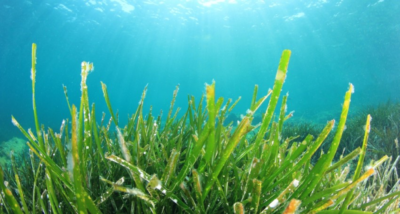
There’s still time to enjoy the benefits of seaweed in your garden for farm.
The best fertilizer you’d probably apply in your garden is seaweed, yet this is the last option people think of when shopping for fertilizers. People prefer buying fertilizers online or at their local shopping centers. This shouldn’t be the case as you can enjoy the benefits of seaweed in your garden in numerous ways. Not only is seaweed organic, but it also comes from a sustainable source. It’s readily available, and harvesting seaweed has no adverse effects on the environment.
Seaweed is a useful soil conditioner because of its rough, fibrous texture. It improves the aeration and drainage in the soil when added to the land.
Benefits Of Seaweed For Your Garden or Farm
1. Fertilizer
Seaweed has readily available nutrients such as nitrogen, magnesium, potassium, and phosphate. It also has other hormones that boost plant growth. Some university studies show that using seaweed as a fertilizer can increase the yield in potatoes, strawberries, tomatoes, corn, and cucumbers up to 40%. In addition, the plants suffered less from softening and rotting.
Natural Benefits Of Seaweed Fertilizer Doubles Garden Production
2. Mulch
Seaweed goes a long way to keep the soil in your garden moist. It reduces the need to water. Seaweed doesn’t need to decompose before application to benefit your garden. This is important because it reduces the number of times you need to weed your garden. The soil beneath the mulch remains moist, thereby making it easy to root out any weeds that sprout above the mulch. Seaweed also doesn’t have seeds that could turn into plants as other mulches like bark mulch do.
When mulches dry up, they are a potential fire hazard. Seaweed does not pose such a danger.
3. Pest Control
Slugs and other pests abhor seaweed since it’s coupled with rough, serrated edges and it’s salty. Seaweed has a naturally high salt content, and after application, it becomes quite crispy. Slugs hate the crispy surfaces because they tear into their soft tissue bodies. Some other mulches provide a hiding spot for pests, but seaweed doesn’t possess this disadvantage.
4. Lightens The Soil
As the seaweed mulch breaks down, the material gets incorporated into the soil, thereby improving the aeration and making the soil more crumbly and moist.
5. Speeds Up Nutrient Intake In Lethargic Plants
The seaweed fertilizer contains chelated nutrients that are readily absorbed without the need for further decomposition.
6. Prevents Diseases And Fungi In Plants
Another benefit of seaweed is it helps you grow robust, healthy plants that can resist fungi and diseases.
7. Extends The Shelf Life Of Fruits And Vegetables
When seaweed is applied to fruits and vegetables ten days before harvesting, it lengthens the shelf life of the crops.
8. Boosts Germination
Seeds soaked in seaweed extract germinate faster, are stronger and have more extensive root growth. The survival rates of these seeds are higher compared to non-soaked seeds. This seaweed extract lowers the transplant shock and boosts the speed with which the seeds grow.
Use The Secrets Of Sea Minerals To Grow More “Nutritionally-Dense Food”
9. Seaweed is FREE!!!
One of the many benefits of seaweed is that it’s readily available on the beach where people can collect it. Most of the beachcombers usually are in pursuit of seashells, but collecting seaweed also provides an excellent source of recreation. However, remember to ask for permission when collecting seaweed from local parks or recreational beaches.
Some other uses of seaweed in your garden include:
-A supplement for chicken feed
-Use it as compost in garden beds
-Save the kelp and use it for making kelp tea
Concerns With Using Seaweed
Some gardeners usually are concerned about the detrimental aspects of the salt in the seaweed negatively impacting their gardens. However, the alkaline content level on the seaweed plant isn’t enough to bring adverse effects to the plants.
Conclusion
In a nutshell, seaweed is a must have for any serious horticultural farmer, so be sure to try it out. It will give you a higher competitive edge over your peers. It also naturally boosts the size, taste, quantity, and quality of your produce. The high yields associated with using seaweed will raise the amount of your take-home allotment. As you can see, the benefits of seaweed are abundant, thus providing a sustainable solution for gardening.
Some seaweed products have “enhancers” that activate and multiply the effects. The best one can be found at this site.
You may also enjoy reading an additional Off The Grid News article: Home Vegetable Gardener – Summer Maintenance Reminders
What are your thoughts on the benefits of seaweed as a garden fertilizer? Let us know in the comments below.
 Off The Grid News Better Ideas For Off The Grid Living
Off The Grid News Better Ideas For Off The Grid Living



